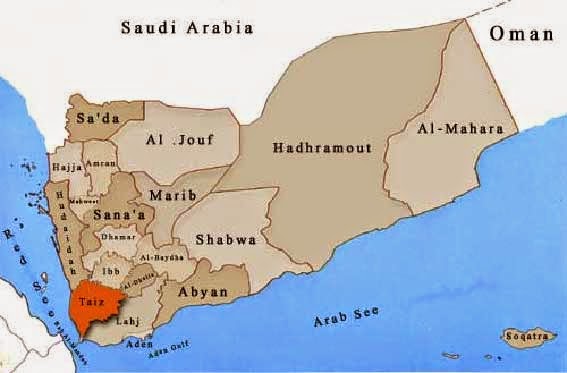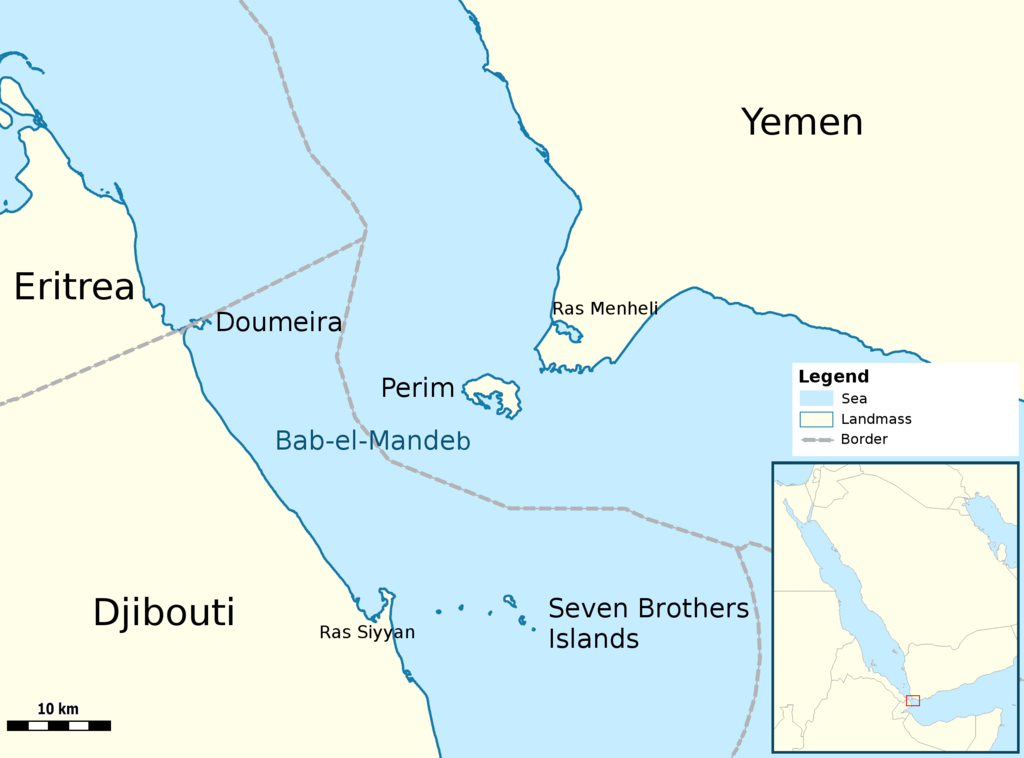Tuesday, April 28, 2015
Saturday, April 25, 2015
The New Great Game, continued: Monocultural China and the multicultural West competing for the World
Why isn’t China’s drive to control markets in Central Asia and Africa a major topic of our political campaigns? Why isn’t the Congress focused mainly on how to strengthen US power in Central Asia? Why do we continue to anger Iran and Pakistan and India and even China by prohibiting our oil companies from exploiting natural gas from the Pars Field, the largest in the world?
Hussein Obama is keeping 10,000 troops in Afghanistan without going though the futile process os getting Congressional approval. Why is it futile? Whoever the next president is, will keep troops in Afghanistan, because US military presence in Central Asia is necessary to balance China’s propinquity there. Just look at a map. Why doesn’t Congress look? Are Congressional maps so different from ours? Do Congressional maps only show Congressional Districts?
Makkah and Madinah are at risk of conquest by ISIS if Anbar falls, as seems likely. When ISIS controls the Holy Places, it will control all of Sunni Asia. The danger is real, and the Saudi know it and fear it.
Does a new oil route from Iran to China , which bypasses India, alarm you? It comforts rulers in China. Does Washington know it, outside the presidency? You wouldn't believe that any know it besides my friend Gerry, by attending to political campaigns.
Does a new oil route from Iran to China , which bypasses India, alarm you? It comforts rulers in China. Does Washington know it, outside the presidency? You wouldn't believe that any know it besides my friend Gerry, by attending to political campaigns.
This blogger's take, looking at the world from Zeus’ point of view: The struggle to control world markets and peoples was between England and Russia in the 19th Century, then the world’s most powerful; it is now between The West (Europe, including Russia and India, and North America) and China.
North America an Europe compete with one another, are multicultural, and have no central deciding authority. Yet. Though I think it is a’comin'. Although multicultural, the West is mostly opposed to Chinese expansion.
China has begun a a concentrated plan to control Central Asia and then the world. The West has more money and people than China has. The West’s plan for expansion is ad hoc, therefore poorly functioning. China’s plan is well-thought-out, focused, an working as well as one might expect a central but global plan to work.
There are seven billion of us human animals; we each see living and dying differently; we all see nothing at all in the same way. Any plan designed for all of us won’t wok, but one designed for all of us will work better than inconsistent, hesitant ad hoc plans.
Here’s for America to agree on a few central ad hoc plans! Here’s for Ethnic Russians to join the EU! Here’s for the the Turkic Council to become a united economic powerhouse! Here’s for the UN to resolve the Palestine Nation issues! Here’s for the Sunni to become China’s problem! Here’s for a Congress that likes compromise, that knows the skills of horse-trading!
The Council on Foreign Relations
Foreign Affairs,
a publication of the Foreign Policy Institute
Beijing Looks West Toward Eurasian Integration
An excerpt from the article:
First among them is bolstering the Chinese economy by providing an outlet for excess industrial capacity. As Beijing tries to cool an overheated domestic infrastructure sector without creating massive unemployment, plans that channel investment-led growth beyond China will be key. Inside China’s borders, the plans focus on China’s relatively underdeveloped western and southern regions, which will help accelerate growth and boost employment there, moves which leaders hope will tamp down ethnic unrest in addition to providing jobs and an outlet for the nation’s workforce.
Thursday, April 23, 2015
The bombing in ¥emen hasen't stopped, and neither have the Houthi
Well, in spite of Obama’s intervention, the bombing hasn’t ended in Sana’a or Taiz and naval bombardments on Aden continue unabated. The air bombings have lessened in San’a.
For illuminating tweets from Yemeni collected by The Times, see
If you don’t know Taiz, also on the Red Sea, here are some images. The bomb bursts are from the last 24 hours.
Many more on line.
Bombs bursting at night gave proof to our troops, years age, that American's flag still flew. Bombs bursting at night give young Yemeni a determination to take control of their government, at any price.
In Arabic, for my self:
أنا اليمنية [I am Yemeni!]
In German, as paraphrased from Kennedy:
Ich bin ein jemenitischen!
And, damn it, you and I are also Saudi: kith and kin, no more than six degrees of separation. And yes, Houthi, oo.
And we also, if born into a Christian, Jewish, or Muslim tradition, in theory, respect the Holy Prophet Abraham.
Yours for victory in Yemen!
d
Wednesday, April 22, 2015
A chance for leverage by Balochi and Uighurs, those willing to die for freedom as they define freedom
The Iran-Pakistan Pipeline, as planned,had begun in Pakistan at the Balochi front end of the Pipeline and ended in India.
A new plan seems to have omitted india, and ends at the Uighur territory at the Chinese end.
Both the Balochi and the Uighurs are Muslims, are both treated badly by their respective governments, and are both objecting to changes in the IP Pipeline. And now the residents of Khyber Pass are complaining.
There are no details on the web of a new route for the pipeline; and both the Balochi and he Uighurs claim that there are changes that reduce benefits to their people.
The Pakistani government in Punjab, which is the primary beneficiary of the Pipeline, deny that there has been any change in the route.
And Punjab is responding to complaints by “setting up a special division for the corridor, including nine army battalions and paramilitary forces”, expensive and unnecessary if there has been no change in the route.
Punjabi speak with forked toguens tongues, we we say in Hawaii.
[xImages added]
Reuters
Industries | Wed Apr 22, 2015 8:53am EDTRelated: ENERGY, INDUSTRIALS, UTILITIES
UPDATE 1-Pakistani politicians decry "unfair" China corridor route
(Adds comment from minister)
By Gul Yousafzai
(Reuters) - Politicians in Pakistan complained on Wednesday that a plan for projects worth $46 billion to be built with Chinese funding has been unfairly changed to the disadvantage of two provinces.
Chinese President Xi Jinping launched the plan in Pakistan on Monday. It involves energy and infrastructure projects linking the neighbours' economies and creating an "economic corridor" between Pakistan's Gwadar port and China's western Xinjiang region.
Gwadar is on the Arabian Sea in Baluchistan, Pakistan's poorest and least populous province, where rebels have waged a separatist insurgency for decades, complaining that richer provinces unfairly exploit their mineral and gas resources.
The deep water Port of Gwadar in Pakistan, on the Iranian border, wholly owned by China
The insurgency has raised doubts about the corridor, a network of roads, railways and pipelines. To minimise the risk, government planners have shifted its route east, to bypass as much of Baluchistan as possible, Baluchistan politicians said.
Balochi freedom fighters
"We will not accept this decision and will resist this move very strongly," provincial Minister for Planning and Development Hamid Khan Achakzai told Reuters. "It will be a big injustice."
Jaffar Khan Mandokhel, a former provincial minister, said there would be a "strong reaction" to the change which would only benefit Pakistan's richest province.
"The change is meant to give maximum benefit to Punjab, which is already considered the privileged province," he said.
Islamabad, Punjab, Pakistan
The route change would also mean the proposed corridor would largely bypass the northwestern province of Khyber Pakhtunkhwa, said opposition politician Imran Khan, whose party rules the province. He condemned any route change as an injustice.
Khyber Pass and its defenders
But federal Minister for Planning Ahsan Iqbal denied that there had been any change and said the project should not fall victim to provincial rivalry.
"This impression that the route has been changed is wrong," Iqbal told a news conference. "Turning this into an issue of conflict between provinces is tantamount to sabotaging billions of dollars of investment."
The complaints highlight the political risks for a plan China sees as a key part of its aim to forge "Silk Road" land and sea ties to markets in the Middle East and Europe.
The Pakistani army said it was tackling the security risks by setting up a special division for the corridor, including nine army battalions and paramilitary forces.
On Tuesday, six separatist militants and two soldiers were killed in clashes in Baluchistan, officials said.
Islamist militants have also attacked Chinese workers in Pakistan. And China worries about Muslim separatists from Xinjiang, whom it blames for a series of attacks across China over the past year, getting training from Pakistani militants.
Lotta freedom fighters, unless you call them terrorists.
(Additional reporting byMehreen Zahra-Malik; Writing by Robert Birsel; Editing by Clarence Fernandez and Alex Richardson)
Saturday, April 18, 2015
A reason for the Saudi and Somali bombing of Aden
A recent quotation from the BBC that helps explain the reasons for the most recent Saudi aerial bombing in Yemen [emphasis added]:
Yemen crisis: Who is fighting whom? - BBC News
The Suez Canal was open in 1869. The Bab al-Mandab strait has been important to world commerce since then.
After rebel forces closed in on the president's southern stronghold of Aden in late March, a coalition led by Saudi Arabia responded to a request by Mr Hadi to intervene and launched air strikes on Houthi targets. [Note: Mr. Hadi was a "guest of the Saudi when he made the "request"] The coalition comprises five Gulf Arab states and Jordan, Egypt, Morocco and Sudan. . . .
Yemen is strategically important because it sits on the Bab al-Mandab strait, a narrow waterway linking the Red Sea with the Gulf of Aden, through which much of the world's oil shipments pass. Egypt and Saudi Arabia fear a Houthi takeover would threaten free passage through the strait.
Yemen crisis: Who is fighting whom? - BBC News
∼∼∼∼∼∼∼∼∼∼∼∼∼∼∼∼∼∼∼
Bab al-Mandab has been occupied by homo sapiens for 6-,000 years, whth varying success.
From Wikipedia:
Haines[disambiguation needed] stated that it could become a major trading centre and the latter part of the British period proved him correct with Aden growing to become one of the busiest ports in the world. In 1838, under Muhsin bin Fadl, Lahej ceded 194 square kilometres (75 sq mi) including Aden to the British. On 19 January 1839, the British East India Company landed Royal Marines at Aden to secure the territory and stop attacks by pirates against British shipping to India. The port lies about equidistant from the Suez Canal, Mumbai, and Zanzibar, which were all important British possessions.
The Suez Canal was open in 1869. The Bab al-Mandab strait has been important to world commerce since then.
Tuesday, April 14, 2015
An open letter to Secretary of State John Kerry, denouncing the Security Council's pandering to the Gulf Corporation Council
Dear Secretary Kerry:
The recent Security Council resolution is a craven pandering to the Gulf Corporation Council in particular and to our own country, in demanding that the Houthis suspend War while permitting other States to continue War, including War upon Civilians, including air and naval bombardments.
The GCC facilitate Ali Abdullah Saleh's departure with some 20 to 60 B (U.N. Security Council Experts estimate) in Yemeni money, which he is now at liberty to use in conducting War against his former, and widely unpopular Vice-President.
The security Council would better
-- require all States and individuals to suspend military action,
-- declare Yemen a Failed State, assume a Mandate for its governance, insure that the remaining oil revenues go to providing for food production in starving Yemen rather than into any private hands,
--recover the money that the GCC allowed Mr. Saleh to steal from the people of Yemen and return it to the people,
-- allow the South of Yemen to vote on partition,
-- and insure a fair distribution of revenues from oil and coffee to all Yemeni.
Only then are fair, representative elections possible.
Yemen is in dire peril. It is time for the United Nations to stop busying itself with pointless pandering resolutions and rescue all Yemeni from the starvation they face when oil reserves dry up in the next few years.
I urge you to at least support Russia's call on all States and Persons to cease fighting in Yemen. The GCC comes to the table with unclean hanns. It should be given no special status, and should be condemned for its past meddling in Yemen's affairs.
Your form for email says a response is due in 3 or so days. I will print your response.
Sincerely,
Durell Douthit
The recent Security Council resolution is a craven pandering to the Gulf Corporation Council in particular and to our own country, in demanding that the Houthis suspend War while permitting other States to continue War, including War upon Civilians, including air and naval bombardments.
The GCC facilitate Ali Abdullah Saleh's departure with some 20 to 60 B (U.N. Security Council Experts estimate) in Yemeni money, which he is now at liberty to use in conducting War against his former, and widely unpopular Vice-President.
The security Council would better
-- require all States and individuals to suspend military action,
-- declare Yemen a Failed State, assume a Mandate for its governance, insure that the remaining oil revenues go to providing for food production in starving Yemen rather than into any private hands,
--recover the money that the GCC allowed Mr. Saleh to steal from the people of Yemen and return it to the people,
-- allow the South of Yemen to vote on partition,
-- and insure a fair distribution of revenues from oil and coffee to all Yemeni.
Only then are fair, representative elections possible.
Yemen is in dire peril. It is time for the United Nations to stop busying itself with pointless pandering resolutions and rescue all Yemeni from the starvation they face when oil reserves dry up in the next few years.
I urge you to at least support Russia's call on all States and Persons to cease fighting in Yemen. The GCC comes to the table with unclean hanns. It should be given no special status, and should be condemned for its past meddling in Yemen's affairs.
Your form for email says a response is due in 3 or so days. I will print your response.
Sincerely,
Durell Douthit
durell douthit
lawyer emeritus
3423 francis street
Honolulu, Hawaii 96815
808/675-8750
ddouthit@mac.com
შეიძლება თქვენ ფეხით სილამაზე.
⌒⌒⌒⌒⌒⌒⌒⌒⌒⎯⎯⎯⎯⎯
If anyone should come out on top, it should be this valiant South Yemen youngman in Aden, defending his turf against all comers.
Aerial and naval bombardment of Aden
1
STOP IT! STOP IT!
HAVE YE NO MILK OF HUMAN KINDNESS?
COMMON, KERRY. DEFY THE GCC. DO THE RIGHT THING! NOW!
Subscribe to:
Posts (Atom)




.jpg)






































.jpg)






.jpg)


